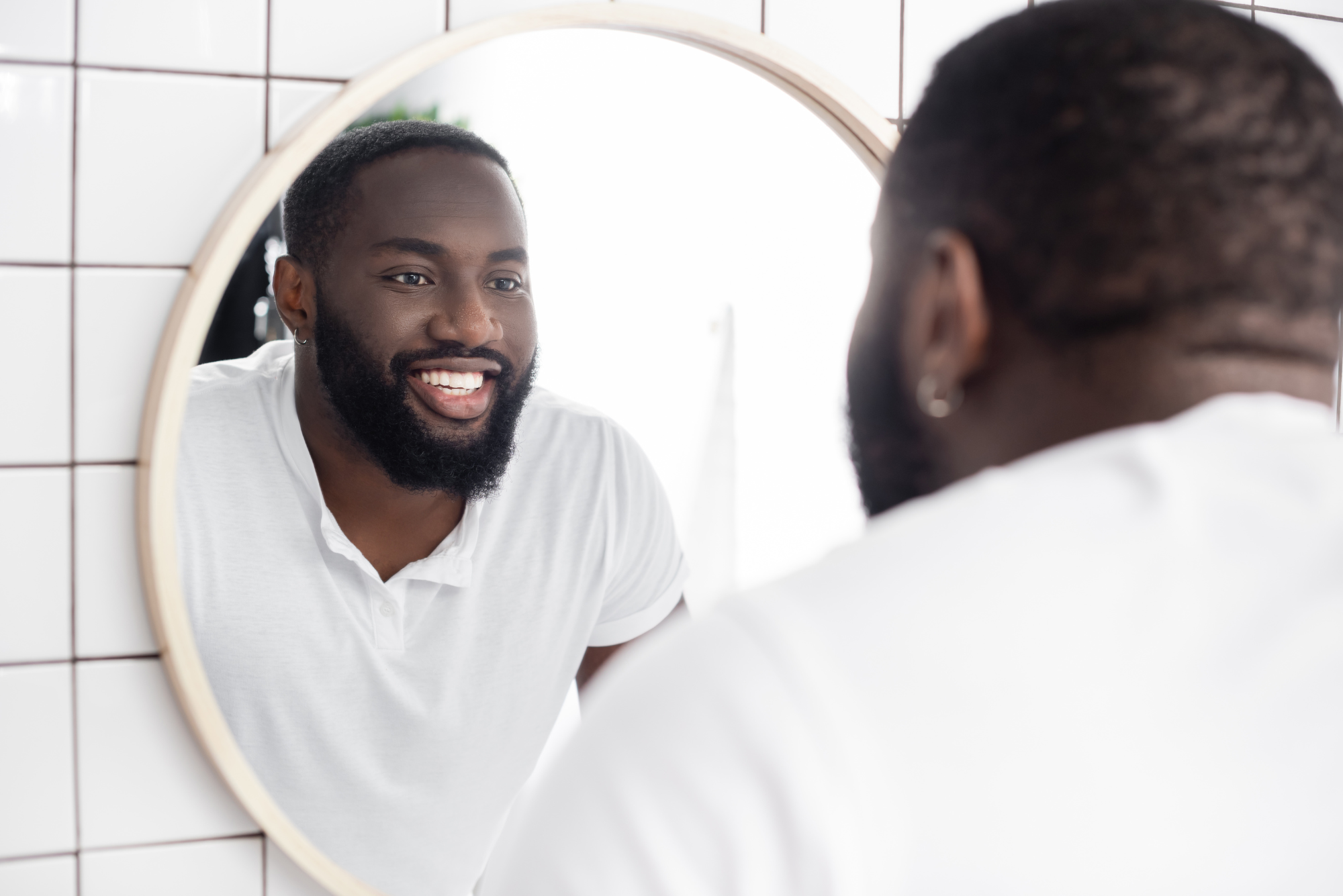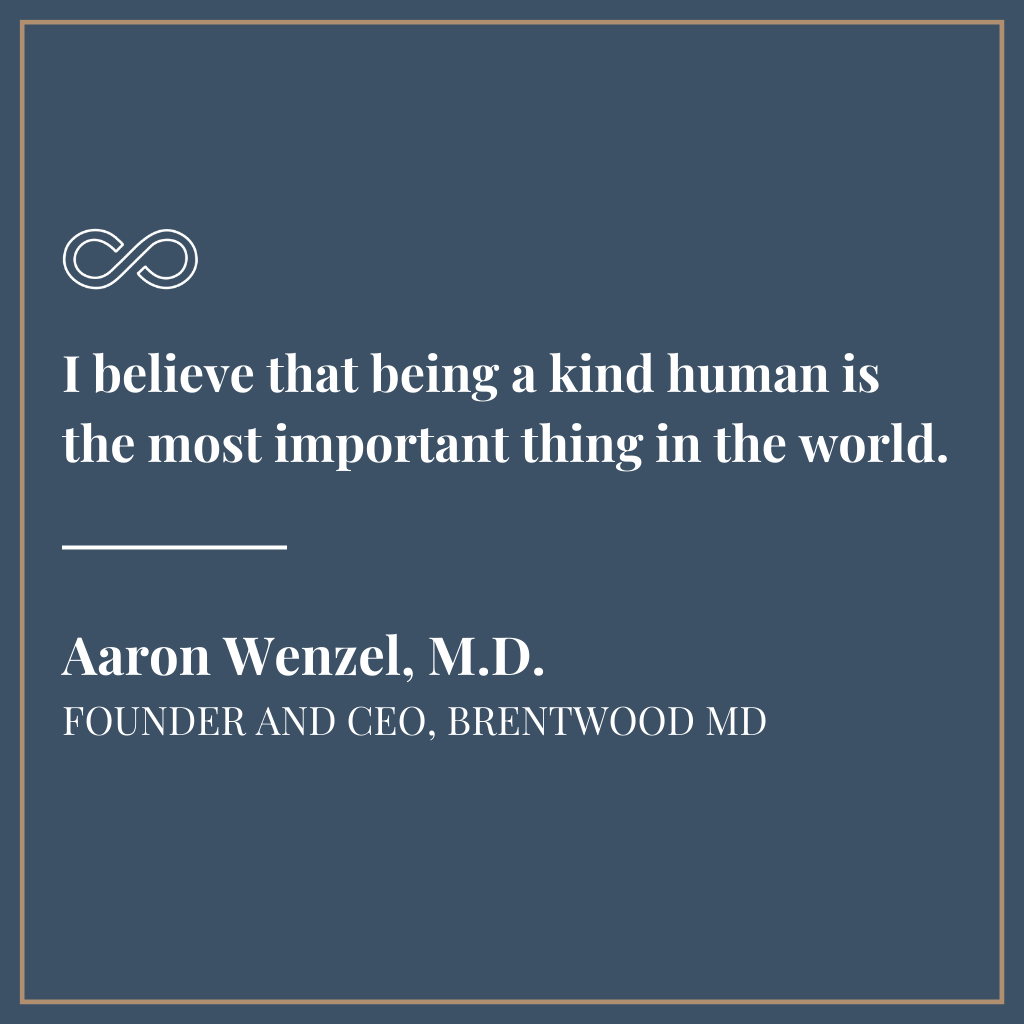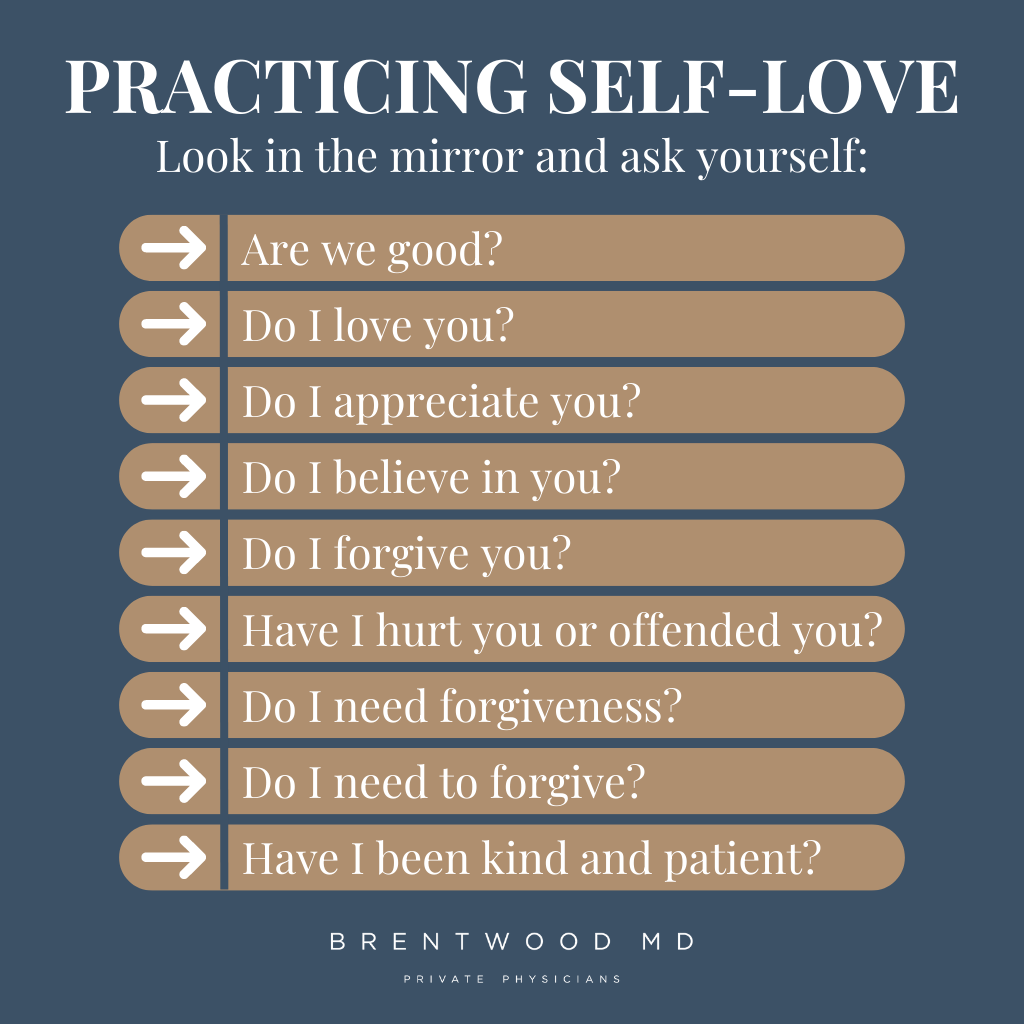Do you like what you see in the mirror?
I’m not talking about liking your physical appearance, but about liking yourself. What I’m talking about is self-esteem.
Self-esteem forms the lens through which you view and experience your entire life. It’s quite possibly the most important thing in the human experience. But you may not realize that self-esteem is rooted in kindness and resilience. If you want to improve your self-esteem, it’s time to work on your relationship with yourself.
Kindness Is the Gateway to Self-Esteem
I believe that being a kind human being is the most important thing in the world. That’s why kindness is our No. 1 core value at Brentwood MD. But being a kind person includes being kind to yourself. This is a blind spot for many people — one that can result in low self-esteem.
Lack of kindness toward oneself and its corresponding low self-esteem limit your impact on the world. The risks you take, the decisions you make, what you invest in, and how you define and feel about your experiences are directly linked to your feelings about yourself. So, how do you feel about yourself?
- Are you worthy of love?
- Are you worthy of connection?
- Are you resilient?
- Do you have what it takes?
I’ve been aware of the importance of self-esteem for most of my adult life. My interest intensified after I had children. I was under the impression that self-esteem was something I needed to impart to them. But self-esteem isn’t something you can give.
What you can do is foster an environment for self-esteem to develop. Let your kids fail, and then coach them back to their feet. When they rally, they learn what they’re made of. This sets them up for a lifetime of self-kindness and self-esteem.
Learning How to Parent Yourself
Your level of self-kindness is tied to how you parent yourself — and this is something we all must do. Self-parenting is a lifelong task, but not everyone does it the same way. The way you were parented determines how you parent yourself.
The better your relationship with yourself, the better your self-parenting will be. Look in the mirror and ask yourself:
- Do I encourage myself when I’m afraid?
- Do I rescue myself when I’m in danger?
- Do I comfort myself when I’m hurt?
- Do I gently correct myself when there is a lesson to be learned?
Think about your children. Do you rescue them when needed? Do you lovingly correct them when they make an error in judgment? If your child reaches out and tugs on the dog’s tail, you don’t decree, “No more playing with dogs.” You correct the behavior and encourage them to go back and engage with the dog in a safe way. You let them learn from their mistakes.
When you look at some of the deep work therapists do, oftentimes it includes identifying areas where we can parent ourselves better.
I’ve previously had the pleasure of interviewing Dr. Brian Hooper, a psychotherapist and minister. He wisely points out that difficulties resulting from early life aren’t always about what happened to you; they’re often about what didn’t happen to you.
Were you waiting for rescue, but no one came? When you fell down, literally or figuratively, were you waiting to be told to dust yourself off and get back up? These missing aspects of parenting anchor you in an inability to give yourself grace, forgiveness, and encouragement.
It’s All in What You Believe About Yourself
A glaring, festering wound in some aspect of your self-esteem will link directly to your ability to be resilient, to rally, to take a leap of faith, and to be brave. It even affects setting goals for your health: what you want to achieve and what you want to avoid.
It’s like I say in my How to Make a Comeback After 50 blog post: What you need in the very first step is to believe it’s possible, and that you’re worth it.
If you drill down far enough, everything comes down to what you do and don’t believe about yourself. Self-esteem is a critical component of parenting yourself. If you don’t have a healthy relationship with yourself, it’s going to show up in virtually every area of your life in one way or another.
Do Unto Yourself as You Do Unto Others
Do you know someone who’s relentlessly kind to others, but not to themselves? (Maybe that person is you.) When you encounter someone like this, it should raise a question like, “Are you hiding the fact that you don’t love yourself by overcompensating in love for others?”
People who are unkind to others probably don’t think of themselves as unkind; people who are unkind to themselves may not notice their own unkindness either. It’s been there so long, it’s just part of the scenery.
So, if self-unkindness is difficult to spot, what can you do? Be curious. Assess whether your kindness out in the world extends to yourself. Take a step back, look in the mirror, and say to your reflection:
- Are we good?
- Do I love you?
- Do I appreciate you?
- Do I believe in you?
- Do I forgive you?
- Have I hurt you or offended you?
- Do I need forgiveness?
- Do I need to forgive?
- Have I been kind and patient?
Refrain from any judgment here. Simply work on noticing the areas in which you lack the same kindness and compassion for yourself that you have for others. Then you can begin the work of extending that kindness inward.
Final Thoughts
The idea of kindness as the gateway to self-esteem blew my mind when I started thinking about it a few years ago. I’ve spent a ton of time pondering the concept and observing, engaging with, and discussing it with people. The deeper I go, the richer it gets.
I promise that once you begin to unpack the concepts of self-kindness, self-parenting, and self-esteem, you’ll think, “How have I never thought of this before?” So go ahead, and explore these concepts within yourself. It’s the kindest thing you can do.

Dr. Aaron Wenzel is a concierge physician specializing in the care of fast-moving entrepreneurs, executives, and public figures in the Nashville, TN area. Dr. Wenzel’s diverse life experience and extensive training in family medicine, emergency care, nutrition, and hormone replacement therapies give him the unique platform to provide unmatched care for his patients.








